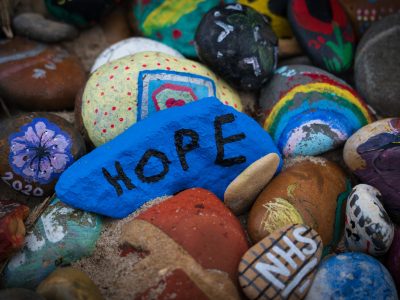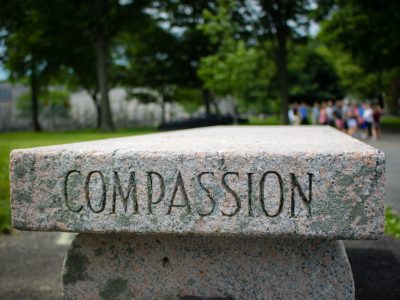May 2022 Craft: Scavenger Hunt Masterpieces
By Major Noelle NelsonDivisional Women’s Ministries Secretary – Golden State Division Note: This is a group activity with craft and Biblical application. This activity works well for one group, several …
Salvation Army USA Western Territory Women's Ministries

By Major Noelle NelsonDivisional Women’s Ministries Secretary – Golden State Division Note: This is a group activity with craft and Biblical application. This activity works well for one group, several …

By Major Noelle NelsonDivisional Women’s Ministries Secretary – Golden State Division By any chance, do you have a sibling? Multiple siblings? All boys? All girls? A mix of both? Whether …

By Major Noelle NelsonDivisional Women’s Ministries Secretary – Golden State Division Sometimes ‘more’ just feels right! I know we’re instructed from our earliest years that wanting more of something is …

“April Showers brings May Flowers,” so the saying goes. In this edition of the newsletter, we celebrate the hope that spring brings. Our monthly Bible trivia questions focus on flowers …

By Major Cathy QuinnAngoon, AK Corps – Alaska Division The Sovereign LORD is my strength. HE makes me as sure footed as a deer, able to tread upon the heights. …

By Captain Jan PembertonDivisional Women’s Ministries Secretary – Cascade Division When thinking about leadership, many thoughts come to mind. When we are working for others, we want our leaders to …

By Major Sabrina TumeySitka, AK Corps – Alaska Division Read 1 Kings 17:7-16 Have you ever felt that your hope was gone, and there was no strength left within you? …

By Colonel Donna Igleheart One of the things I have learned living in the West is that anything is possible in the spring. This past week we experienced 90 degree …

By Lt. Faith HarttKlawock, AK Corps – Alaska Division As Easter approaches my thoughts wander to the garden that early Sunday morning when Mary Magdalene was overjoyed to see her …

Is there anymore hopeful month than April? Spring has sprung and this month we celebrate Easter. Easter is when we celebrate the Death and Resurrection of our Lord and Savior, …

By Commissioner Colleen Riley He is Risen! It’s April and this month I am reminded more profoundly than ever before, of the goodness of God, the sacrifice of Jesus, and …

By Colonel Donna Igleheart March 8, 2022 is recognized as International Women’s Day. It’s an opportunity to pay tribute to all the women who have stood up against an unjust …

By Major Vicky VillaneaSanta Maria, CA Corps – California South Division NOTE: This craft is in both English and Spanish Materials/ Material: ⦁ 10 Palitos de Elote⦁ 1 Gancho de …

This month’s issue is all about St. Patrick’s Day. The beautiful, green shamrock is a great reminder of the message of hope found in Jesus Christ. Just as St. Patrick …

By Captain Patricia TorresVentura, CA Corps – California South Division INTRODUCTIONThere is much confusion in the world today in regards of the role of women in marriage. Though the Bible …

By Major Martha TrimmerPastoral Care & Financial Development Officer – California South Division “Since God chose you to be a holy people he loves, you must clothe yourselves with tenderhearted …

By Captain Joanna WangSan Gabriel, CA Corps – California South Division A few months ago, I was walking in my neighborhood with my two-year-old son. I decided to pick up …

February 14th is Valentine’s Day, a day we focus on love. Let’s spend the whole month of February focusing on God’s love for us, and our love for others. This …

By Captain Susan CassinAnacortes, WA Corps – Northwest Division When it comes to shopping there are two prevailing mindsets around this activity. There are those who love it and those …

By Major Julie FeistKalispell, MT Corps – Northwest Division For those who have women who are homebound or are unable to attend, here is a simple program that can be …

By Major Beth Desplancke Back when my husband and I were dating, early on in our relationship, Frank had to go out of town for a conference and was gone …

By Captain Ryan BoydMissoula, MT Corps – Northwest Division On one occasion an expert in the law stood up to test Jesus. “Teacher,” he asked, “what must I do to …

By Captain Eunha KimEastside, WA Corps – Northwest Division 하나님은 우리에게 성경을 통하여 사랑을 말씀하신다.성경책은 사랑의 책이라고 하여도 맞을 것이다.요한복음에서만해도 사랑이라는 단어는 50번을 넘게 우리에게 말씀하셨다.주님은 왜 우리에게 사랑이라는 말씀을 …

By Lt. Isabella GreenBellingham, WA Corps – Northwest Division Twenty-four years into my life and I’ll finally admit it, I was an angry kid. I had a short fuse that …